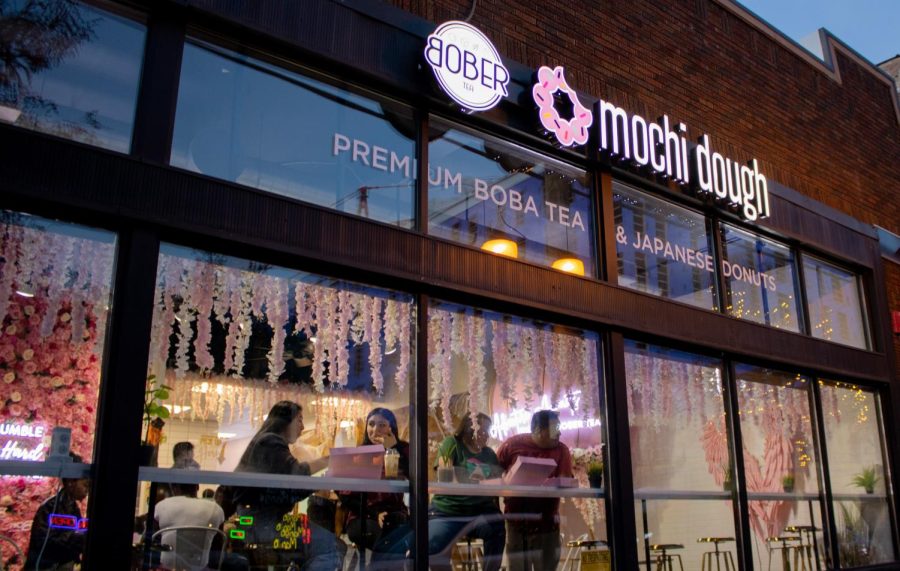Ten boba tea shops on one campus and four on one street may seem excessive, but to University of Minnesota’s Asian American students, it feels right.
Taiwanese shop owners invented boba tea in Taiwan during the 1980s by combining milk tea and tapioca pearls. A wave of East Asian immigration has since brought boba to the United States, turning the sweet drink into a symbol of Asian American culture.
Like on many other American college campuses, boba tea has gathered intense momentum near the University, in part because of the large Asian community near campus.
Fourteen percent of the University’s students are Asian, more than double the percentage in the United States at large.
Boba’s popularity has been enough to justify four shops on one block of 14th Avenue Southeast alone.
Tiger Sugar barista Renee Chen said long lines formed upon the openings of both Tiger Sugar and Bober Tea, despite there already being well-known Dinkytown establishments.
Boba’s demand at the University is not an anomaly. From Oregon State University to Harvard, boba tea seems to be growing unstoppably on college campuses across the country. .
Gloria Yin, owner of Feng Cha in Prospect Park, said boba tea owes its high demand on American college campuses to its Asian customers and open-minded non-Asian students.
Chen said around 80% of the customers she sees are Asian. Those customers also introduce the drink to their non-Asian peers.
“I would see a lot of Asian people bring in friends from other ethnicities,” Chen said.
Boba tea shops near campus work to set themselves apart.
Each shop has a signature drink they encourage new customers to try and many represent regional variants of the drink. The diversity within this subgenre of restaurants allows students to both try new things or return to something comfortable.
Quitung Fang, a University student from China, said the jasmine tea at Mango Mango Dessert in Dinkytown reminded her of Hong Kong-style boba.
Tiger Sugar leans into its Taiwanese origins to help define its identity, Chen said.
Promotion on social media is a key form of competition between boba shops on campus.
When students are always a five-minute walk away from any shop of their choice, social media is a key decision factor, according to Lindsey Chairado, a shift trainer at Bober Tea in Dinkytown. She said cute packaging and presentability are important parts of the business.
Many shops specialize in drinks meant to look as good as they taste. They also cultivate a particularly Instagrammable atmosphere, lining the walls with plants and flowers, installing colorful lighting and playing energetic electropop music over their speakers.
The surge in Asian cultural imports is not unique to boba tea.
Kaylee Redden, regional manager of Chatime in Dinkytown, compared boba’s sudden and extreme rise to other Asian cultural phenomenona, like anime and K-pop.
“It’s become more popular to engage with those Eastern cultures,” Redden said.









Beatrice Handlin
Oct 28, 2022 at 7:20 pm
It’s really weird that this article is clearly based on an article from the Wake that was published last week without crediting it….
Not very good journalistic integrity